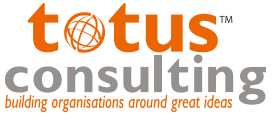
- June 10, 2022
- 7 Minute to read
- Articles & Blogs
(When) Does a Start-up Entrepreneur Need Coaching?
The original title of this article did not have the parentheses.
I hastily added it because i thought many would consider the question presumptuous and prefer to ask the more fundamental question first – does an entrepreneur really need coaching?
In all fairness, it is necessary to answer that question first before answering the question “when” and then maybe “how”.
The best way to answer that is by offering a quick quiz to the entrepreneur (start-up or scaled up). here are ten questions that will hopefully help the entrepreneur decide if he needs to engage in any kind of developmental or helping relationship.
(I am using the term “developmental or helping relationship” deliberately to give a broader meaning and scope to what we are talking about rather than use the term coaching which may have a rather restricted view. we see such a relationship as being skilled helping in a business context focusing on helping or developing the person rather than solving her or his problem)
It may include a coach who can help the entrepreneur find answers and solutions or plan actions to achieve his leadership development needs or a mentor who can provide insights or answers to some of his business related questions or offer advice on matters relating to strategy, fund raising, products, markets, customers, investors, board and so on. both of them create a safe space for sharing, exploration and even ventilation of their issues and concerns.
We are of course leaving out consultants who can offer their expertise in specific areas like hr, tax, compliance, technology, branding and so on. of course, we will come back to these sources of help and their value soon.
We are also looking specifically at entrepreneurs who started a business fresh out of college without any significant organisation experience. these could include those who have not raised external capital and those that have.
Do i need to engage in a developmental relationship?
Please answer the following ten questions using the following three point scale:
3. strongly agree; 2. agree; 1: mildly agree;
I would consider emotional intelligence my strength (the capacity to be aware of, regulate and express one’s emotions and to handle interpersonal relationships judiciously and empathetically and through all of this experience well-being.)
I would consider myself reasonably self-aware (aware of my strengths, my values, my preferences, my areas of development)
I enjoy a trust-based working relationship with my co-founders
I enjoy a great productive working relationship with my leadership team
I am able to manage my stress well and enjoy the process of doing what i am doing
I fully comprehend the dimensions of my role as a leader and its distinction from my role as an entrepreneur
I have a managerial style that makes me productive and empowers my team and drives performance
My leadership style has a positive influence over the culture of my organisation
In the last one year i have taken concrete steps to enhance my competencies in line with the changes in all the dimensions of my role as a leader and entrepreneur
I have access to trusted confidantes whenever i feel alone, or in a dilemma or struggle to find answers or get fresh perspectives
if your honest response is a “1” to 3 or more questions, you may benefit from engaging in a developmental or helping relationship.
Why entrepreneurs need help
Having offered a quick quiz to promote some reflection, i would now like to present an empathetic view of the entrepreneur and why he or she so urgently needs the support of a helping or developmental relationship.
The best way to do this is to compare the entrepreneur’s leadership journey with that of a corporate executive.
According to the centre for creative leadership (ccl), any experience that is developmental in nature (as opposed to an ordinary experience) contributes to the development of any leader.
The ingredients of such a developmental experience according to ccl are assessment, challenge and support.
Assessment is all about having formal and informal data on a real time basis about oneself and on that basis know where one stands.
Challenge is about being pushed out of one’s comfort zone and being stretched and forced to look beyond what one has the capacity to do.
Support is about feeling safe and helped to face those challenges.
CCL adds that some of the most typical developmental experiences that are rich in all three dimensions are formal training that is feedback rich, formal coaching, informal mentoring, 360 feedback, hardship and the content of the work itself.
Let’s now compare a typical corporate executive with a typical entrepreneur to see how these dimensions and experiences pan out as they progress in their careers. (for ease of understanding we are looking at a typical profile. there will certainly be exceptions on both sides)
You can see that the average corporate executive is high on assessment and support and medium on challenge. what does this mean? please note – high on assessment and support and medium on challenge. support mostly matches challenge.
That means, the corporate executive works in an environment where there is a system of regular performance feedback in addition to the opportunity to periodically participate in formal assessment processes keeping development in mind. it also means that these executives have the opportunity to participate in a wide variety of level appropriate development programs in addition to access to formal coaching and mentoring.
On the other hand, except for a few executives and except for certain difficult business times, the kind of challenge they face is never completely disproportionate to their level or capacity.
The entrepreneur is on the other hand high on challenge and medium on feedback and low on support. what does this mean? please note – high on challenge and low on support.
The most potent developmental experience for the entrepreneur is his or her job challenge and a huge dose of hardship. often, these hardships and challenges come in at an age that is often too early and when they are too unprepared. in that sense, these experiences are hugely developmental.
However, these experiences are also like being thrown into the deep end of the pool and being expected to swim.
They have very few opportunities for formal feedback, opportunities to enhance self-awareness and obtain external benchmarks on their competencies and style.
They also lack access to timely support from programs and people.
Now, here is an added complexity – central to the so called entrepreneurial spirit is the trait of setting out to do things unmindful of limitations in resources, internal and external. that is what propels entrepreneurship.
That in many ways sums up the unique context of the entrepreneur and why support in the form of any helping or developmental relationship will be invaluable.
What kind of developmental relationships will help?
It must be clarified right away that any such help cannot be a one-time fix. one of the common perceptions about coaching or mentoring or any other support is that it is like a vaccination you administer to infants, once in a life time.
Like corporate executives, coaches will need access to different kinds of developmental relationships at different stages in their journey of growth to address different agendas.
This is where those in the helping profession and the entrepreneurs seem to miss the point.
Here is a model that i would like to suggest as a way of looking at a range of helping relationships combined with developmental experiences at various stages of the entrepreneur’s journey. specifically, this model looks at a combination of assessment and support, given that challenge is available in plenty already.
Mentoring
Mentoring is an invaluable source of support at a time when entrepreneurs are ideating about starting a business. in addition to the obvious mentoring support on aspects of business, they need mentoring on the emotional and interpersonal dimensions and get a sense of what to expect. this would be in the form of guidance, shared personal experiences, role models to emulate and even some tough advice.
Such mentoring support can often continue for a long time and from different sources, each from one lens and one vantage point.
Assessment
Entrepreneurs need critical development feedback to understand their strengths and some of their potential derailers. co-founders who were great hostel mates can get entangled in bitter irreconcilable differences simply because a social relationship does not sustain in a business setting. such assessment needs to come as soon as they get started rather than later.
Such assessment support must almost be like an annual health check-up serving as indicators for the present and the future.
The very nature of such actionable assessment will necessitate perhaps an executive coach with contextual knowledge. someone who can not only assess but also de-brief with care and then support in coming up with simple actions.
Coaching
As the entrepreneur begins to scale and the issues of organisation and leadership surface, he or she will need support in developing those muscles and facing the road ahead. that is where a coach can become invaluable.
Who is suitable to coach and mentor and what should be the nature of the engagement?
This is where entrepreneurs can go terribly wrong. they are often not clear about what to look for in whom and end up embarking on a search that is designed to fail. “there isn’t anyone who exactly understands my unique situation and has been there and done that exact thing and so no one can understand me and help me and i have to do it alone” is what they would often tell themselves.
It is fair to expect mentors to have strong business and domain and contextual know-how. it is also fair to expect such mentors to be available on tap for spontaneous support. that is why mentors are more suitable in the early stages. however, such mentors need to have a certain level of training to uphold the true spirit of helping and not be seen as tormentors. they should also refrain from excessive advice and creating dependencies and aim to empower.
On the other hand, coaches should not even be from the same business because they will then be tempted to “solve the problem” and not “help the person”. they only need to have significant executive experience; have held senior positions and have a fair understanding of current business contexts but fully understand the tasks and demands of business leadership.
By setting up criteria that is unreal and unnecessary, entrepreneurs can end up deceiving themselves and coming in their own way of growth. by seeking help early, they can grow and enjoy the journey.
The role of investors
Investors (vcs and pes) are in a unique position to be the sponsors for such developmental relationships. those that enjoy the trust and have earned credibility are able to sponsor such a relationship by not just making an introduction but preparing the ground, setting the context and staying connected.
Such sponsors can play a crucial role in reducing resistance, creating readiness and encouraging participation and offering perspectives.
Without a sponsor the accountability to seek help and make changes may be somewhat muted.
For that to happen, vcs could also may benefit from getting educated about how such helping relationships work, what to look for, how to sponsor and so on. they can also take the time to ask the right enabling questions in their board meetings.

Leave a Reply